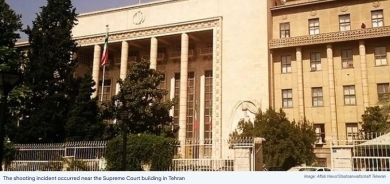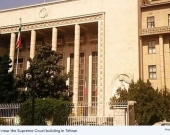Tunisia enshrines gender equality in constitution

The text enshrining gender equality was approved by 159 lawmakers out of the 169 who voted. Women's rights activists in Tunisia hailed the provisional approval of article 20, which states that "all male and female citizens have the same rights and duties. They are equal before the law without discrimination".
"We wanted to add details that would ban discrimination based on sex or skin colour," Ahlem Belhaj, former president of the Tunisian Association of Women Democrats, told AFP.
"But it is very good news that (gender) equality has been adopted. It was our demand and it's a victory," she added.
Tunisia has set itself a tight timetable for adopting the long-delayed new charter of January 14, the third anniversary of the overthrow of dictator Zine El Abidine Ben Ali in the popular revolt that sparked the Arab Spring.
Since the 1950s, when it gained independence from France, Tunisia has had the Arab world's most progressive laws on women's rights, although men remain privileged notably in terms of inheritance.
Some have accused the outgoing Islamist-led government of wanting to roll back those rights.
Rights groups have reservations
Ennahda, the ruling Islamist party, sparked a storm of controversy in 2012 when it tried to introduce the concept of gender "complementarity" rather than equality into the post-uprising constitution.
The new text was agreed during recent negotiations between Ennahda and the secular opposition, which thrashed out a series of compromises aimed at bringing about an end to the political crisis triggered by the assassination of an opposition politician by suspected Islamist militants last year.
Rights groups had expressed reservations about the article on gender equality, arguing that it limits the rights to citizens and not foreigners, and does not specify the prohibited grounds of discrimination.
They urged the assembly, in a joint statement last week, to "enshrine the principles of equality and non-discrimination before the law and extend it to anyone subject to the jurisdiction of Tunisian authorities, including both citizens and foreigners".
"Article 20 should specify that discrimination, direct and indirect, is prohibited on the grounds of race, colour, sex, language, religion, political or other opinion, national or social origin, property, birth or other status," said the NGOs, which included Amnesty International and Human Rights Watch.
Article 45, which would guarantee the protection of women's rights by the state and the "equality of opportunity for men and women," has yet to be examined.
(FRANCE 24 with AFP)














